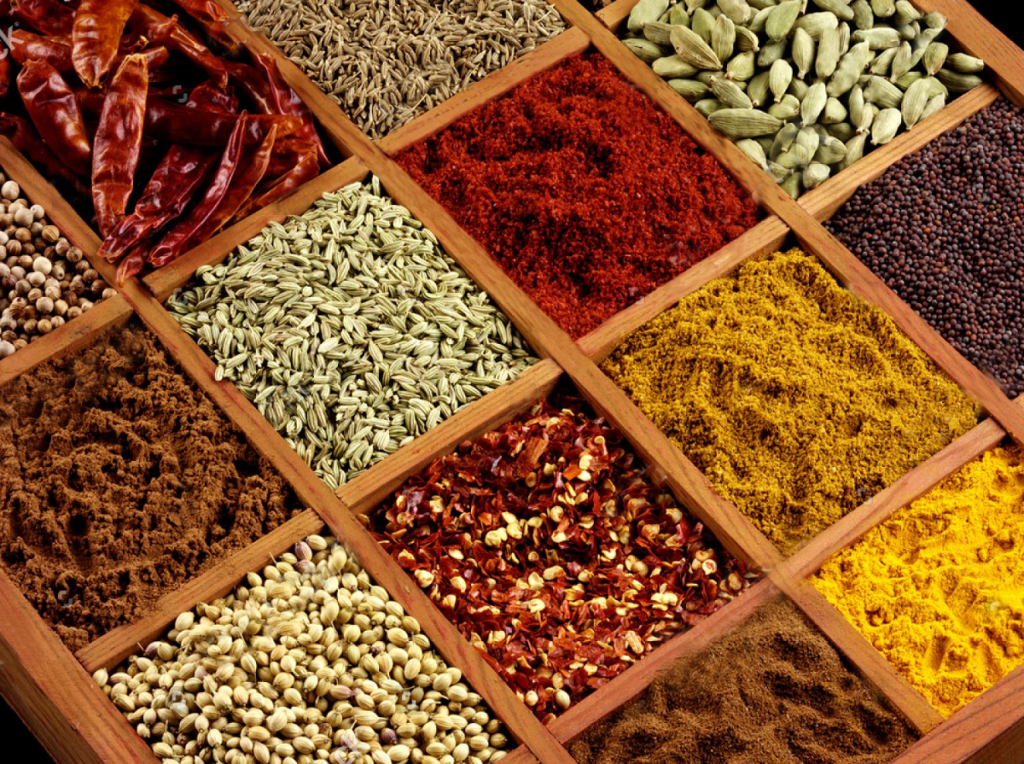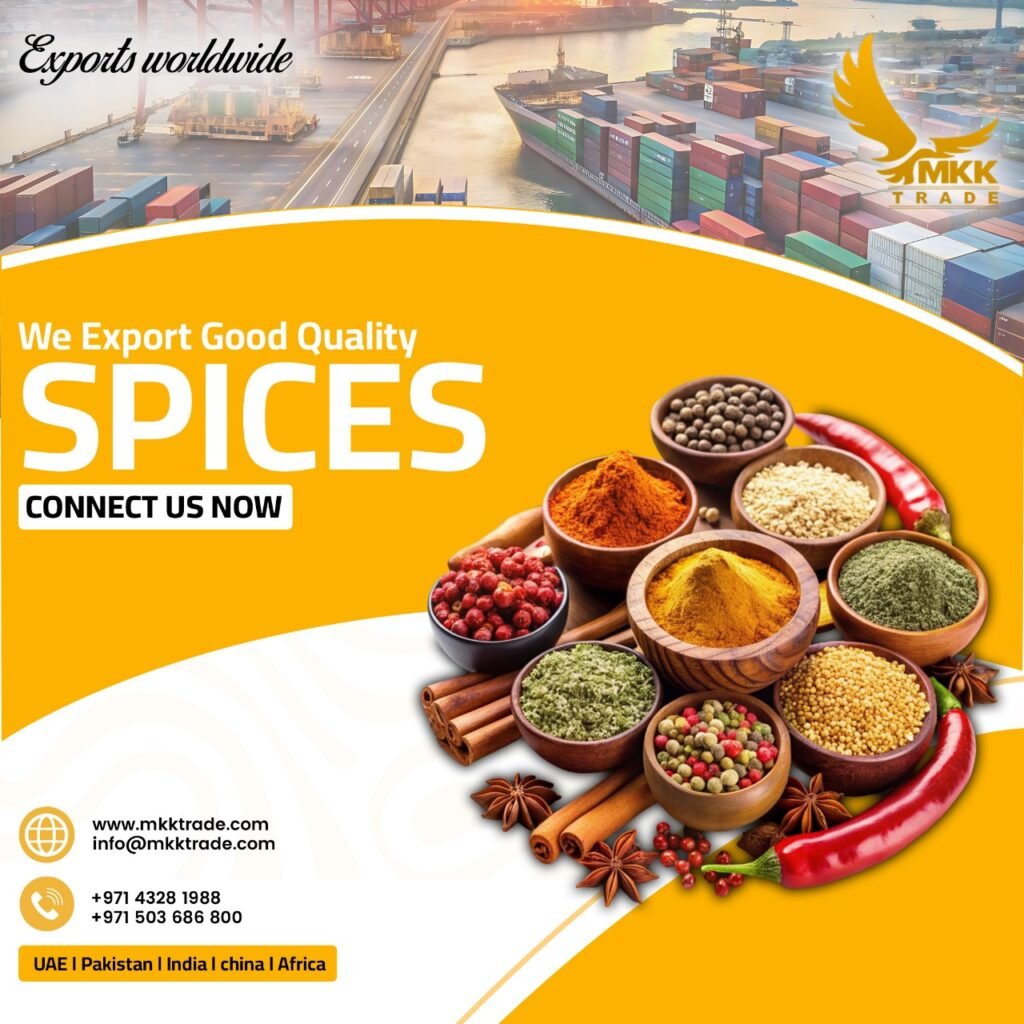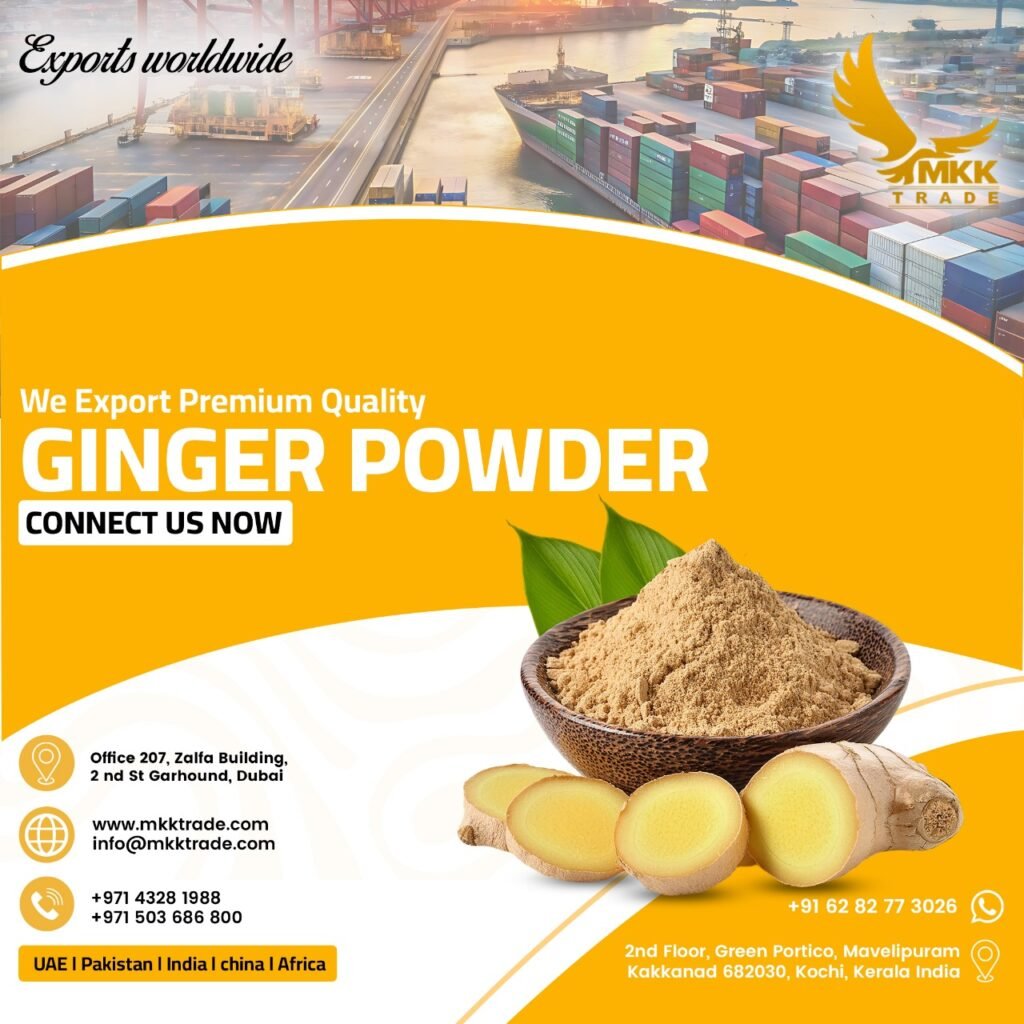The Growing Relevance of Spices in Modern Times
Spices, often referred to as the heart of culinary traditions, have held immense significance throughout human history. From their use in ancient trade routes to their role in shaping cultural identities, spices have been central to the evolution of global cuisines and economies. Today, their relevance extends far beyond flavor enhancement, encompassing health benefits, cultural connections, and economic impact. Here's an exploration of why spices are indispensable in modern times:
1. Essential to Global Cuisines
Spices are the cornerstone of culinary traditions worldwide. They add depth, flavor, and complexity to dishes, transforming simple ingredients into memorable meals. Indian curries, Mexican chili, Middle Eastern za'atar, and Mediterranean marinades all owe their unique identities to specific blends of spices. As globalization expands culinary horizons, the demand for authentic spices has skyrocketed, with people embracing diverse cuisines and experimenting with new flavors in their kitchens.
2. Health and Wellness Benefits
The relevance of spices in promoting health has been recognized for centuries, and modern science continues to validate their medicinal properties. Turmeric, for instance, is celebrated for its anti-inflammatory and antioxidant benefits, while cinnamon aids in blood sugar regulation. Spices like ginger, cardamom, and cloves are widely used in traditional and alternative medicine to treat ailments ranging from digestive issues to respiratory infections. With the rising popularity of natural remedies and functional foods, spices have become a key ingredient in wellness-focused diets.
3. Role in the Food Industry
The global food and beverage industry relies heavily on spices for flavoring, coloring, and preservation. Ready-to-eat meals, snacks, sauces, and beverages often include spices to enhance taste and appeal. The demand for high-quality, natural spices is particularly significant as consumers increasingly prefer clean-label products free from artificial additives. This trend underscores the importance of spices in meeting consumer expectations for authentic, health-conscious food options.
4. Cultural and Emotional Connections
Spices are deeply intertwined with cultural heritage and identity. They serve as a bridge between generations, carrying forward traditional recipes and rituals. Festivals, ceremonies, and special occasions often feature dishes enriched with spices, symbolizing warmth, hospitality, and celebration. The emotional connection people have with spices underscores their enduring relevance, as they evoke memories and foster a sense of belonging.
5. Economic and Agricultural Significance
The spice industry plays a crucial role in the economies of many countries, particularly those in tropical regions. In India, for example, spice cultivation and export provide livelihoods to millions of farmers, traders, and workers. Spices are a major contributor to the agricultural export sector, with growing international demand boosting revenues and economic growth. Additionally, sustainable spice farming practices contribute to environmental conservation and rural development.
Spices exporter India Spices exporter India Spices exporter India Spices exporter India Spices exporter India Spices exporter India Spices exporter India Spices exporter India Spices exporter India Spices exporter India Spices exporter India Spices exporter India Spices exporter India Spices exporter India Spices exporter India Spices exporter India Spices exporter India Spices exporter India Spices exporter India Spices exporter India Spices exporter India Spices exporter India Spices exporter India Spices exporter India Spices exporter India Spices exporter India Spices exporter India Spices exporter India Spices exporter India Spices exporter India Spices exporter India Spices exporter India Spices exporter India Spices exporter India Spices exporter India Spices exporter Indiav
6. Adaptation to Modern Lifestyles
As lifestyles become busier, the way spices are consumed has evolved. Pre-ground and blended spices, instant seasonings, and spice-infused products offer convenience without compromising on flavor. Spices are also gaining prominence in industries beyond food, such as cosmetics and aromatherapy, where their natural properties are used in products like essential oils, skincare, and wellness formulations.
7. Spices in Global Trade and Diplomacy
Historically, spices were among the most valuable commodities in international trade, shaping empires and economies. Today, they continue to be a significant component of global trade, fostering economic ties between producing and importing countries. The exchange of spices represents not only commerce but also a cultural dialogue, as nations share their culinary treasures with the world.
8. Response to Health and Environmental Awareness
The growing awareness of the environmental and health impacts of synthetic additives has made spices more relevant than ever. Organic and sustainably sourced spices are in high demand among eco-conscious consumers. Their use aligns with broader trends toward natural and minimally processed foods, reflecting a shift in consumer priorities toward sustainability and well-being.
Conclusion
The relevance of spices in today’s world is multifaceted, encompassing their culinary, medicinal, cultural, and economic importance. As the demand for flavorful, healthy, and sustainable ingredients continues to rise, spices remain at the forefront of global food trends. They not only enrich our meals but also connect us to our cultural roots and contribute to a healthier and more vibrant world. In essence, spices are not just ingredients—they are a symbol of history, diversity, and the universal love for good food.
Spices exporter India Spices exporter India Spices exporter India Spices exporter India Spices exporter India Spices exporter India Spices exporter India Spices exporter India Spices exporter India Spices exporter India Spices exporter India Spices exporter India Spices exporter India Spices exporter India Spices exporter India Spices exporter India
Common Myths About Spices: Separating Fact from Fiction
Spices have been a part of human history for centuries, often surrounded by stories, assumptions, and misconceptions. While they are celebrated for their flavor, medicinal properties, and cultural significance, several myths persist, clouding the true understanding of these culinary and medicinal treasures. Let’s debunk some of the most common myths about spices:
Myth 1: Spices Lose Their Flavor and Potency Over Time
One widespread belief is that spices lose all their flavor and potency if they are stored for too long. While it’s true that spices can degrade over time, proper storage can significantly prolong their freshness. Keeping spices in airtight containers, away from light, heat, and moisture, helps retain their essential oils and aromatic compounds. Whole spices, in particular, tend to maintain their potency much longer than ground ones, which are more exposed to air.
Myth 2: Spices Are Only Meant to Add Flavor
Another misconception is that spices are purely for taste and lack any significant nutritional or health benefits. In reality, many spices are packed with bioactive compounds that offer a variety of health benefits. Turmeric, for instance, contains curcumin, known for its anti-inflammatory properties, while cinnamon can help regulate blood sugar levels. Spices have long been used in traditional medicine, and modern science continues to uncover their therapeutic potential.
Myth 3: Spicy Food Is Always Bad for Digestion
Many people believe that spicy food, often flavored with chilies or pepper, is harmful to the stomach and causes digestive issues. While excessive consumption can irritate sensitive stomachs, moderate use of spices like ginger, cumin, and fennel can actually aid digestion by stimulating gastric juices and improving gut health. Capsaicin, the compound in chili peppers, even has anti-inflammatory properties and can promote metabolic health when consumed responsibly.
Myth 4: All Spices Are Spicy
A common misunderstanding is equating the term "spice" with heat or pungency. In fact, many spices are not spicy at all. Spices like cinnamon, nutmeg, and cardamom add sweetness and warmth, while others, like coriander and saffron, offer subtle and earthy flavors. The diversity of spices encompasses a vast range of flavor profiles, from sweet and aromatic to savory and tangy.
Myth 5: Imported Spices Are Always Better
Some believe that imported spices are inherently superior to locally sourced ones. The truth is, the quality of spices depends on factors like cultivation methods, processing, and freshness rather than their origin. Locally sourced spices can often be fresher and more flavorful than those that have traveled long distances, provided they are grown and handled properly.
Myth 6: Organic Spices Are the Same as Regular Spices
While some assume there’s no difference between organic and non-organic spices, this is not entirely accurate. Organic spices are cultivated without synthetic pesticides or fertilizers, often making them a healthier and more environmentally friendly option. However, not all organic spices are of superior quality—it depends on how they are processed and stored.
Myth 7: Spices Are Expensive Luxuries
Historically, spices were considered valuable and rare commodities, often associated with wealth and status. This perception persists today, leading some to think spices are luxury items. However, in modern markets, a wide variety of high-quality spices are available at affordable prices. The cost often reflects the labor-intensive processes involved in their cultivation and harvesting, but they remain accessible and economical considering their long shelf life and versatility.
Myth 8: Spices Are Harmful During Pregnancy
There is a misconception that pregnant women should completely avoid spices. While certain spices like fenugreek and excessive amounts of cinnamon may be discouraged, many others, such as ginger, are beneficial during pregnancy for managing nausea and improving digestion. Moderation and guidance from healthcare professionals ensure that spices can be safely enjoyed during this time.
Myth 9: Darker Spices Are More Potent
The idea that darker-colored spices are inherently more potent or flavorful is another myth. The color of a spice often depends on its variety, growing conditions, or processing method, not necessarily its potency. For example, different types of paprika can range from mild to very spicy, regardless of their color.
Myth 10: Blended Spices Are Inferior to Whole Spices
Some people assume that spice blends are less authentic or flavorful than using individual, whole spices. While pre-made blends can sometimes include fillers or lower-quality ingredients, reputable brands offer blends that are carefully crafted to enhance specific dishes. They provide convenience without compromising on flavor when sourced from trusted suppliers.
Conclusion
Spices are a fascinating and versatile part of culinary and cultural traditions, but myths and misconceptions often obscure their true potential. By understanding the facts, we can better appreciate the richness and diversity of spices, embracing their flavors and benefits with greater confidence and knowledge.
Key Facts About Spices
Spices have been a cornerstone of human civilization, enriching cuisines, medicine, and culture for centuries. Here are some essential facts that highlight their significance and versatility:
Historical Importance
Spices were among the most valuable commodities in ancient trade, driving global exploration and shaping economies. The spice trade routes connected Asia, Europe, and the Middle East, profoundly influencing history and culture.
Wide Variety
There are hundreds of spices globally, each with unique flavors, aromas, and uses. Common spices include turmeric, cinnamon, cumin, black pepper, cardamom, and chili.
Culinary Versatility
Spices are used in a range of dishes, from savory curries and marinades to sweet desserts and beverages, enhancing flavor and aroma in every cuisine.
Medicinal Benefits
Many spices are rich in bioactive compounds. Turmeric, with its active ingredient curcumin, is known for its anti-inflammatory properties, while ginger aids digestion and boosts immunity.
Cultural Significance
Spices are deeply woven into cultural traditions, rituals, and celebrations. They symbolize hospitality, warmth, and festivity in various cultures around the world.
Economic Impact
Spices contribute significantly to the economies of major producing countries like India, Indonesia, and Vietnam. The global spice trade is valued at billions of dollars annually.
Sustainability and Organic Practices
The rising demand for organic and sustainably sourced spices has led to eco-friendly farming practices, supporting both environmental conservation and local farming communities.
Global Reach
Spices are exported worldwide, with India being the largest producer and exporter. They are a vital component of international trade and culinary exchange.
Storage and Shelf Life
Properly stored spices, particularly whole ones, can retain their flavor and potency for years. Ground spices have a shorter shelf life but are more convenient for quick use.
Modern Applications
Beyond cooking, spices are used in cosmetics, aromatherapy, and wellness products. Essential oils derived from spices like clove and cinnamon are popular in these industries.
Conclusion
Spices are more than just flavoring agents—they are a testament to the richness of human history, culture, and innovation. Their wide-ranging uses and benefits continue to make them an indispensable part of life across the globe.




